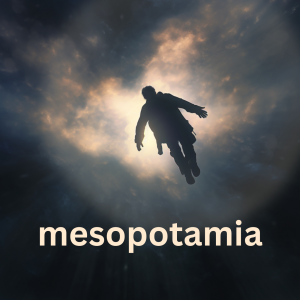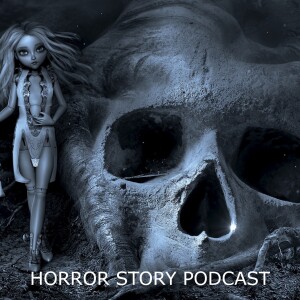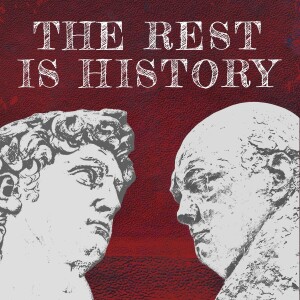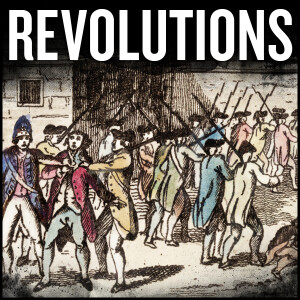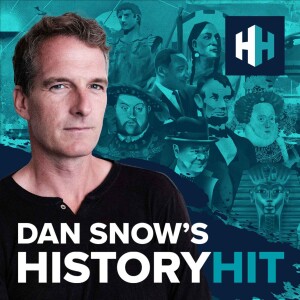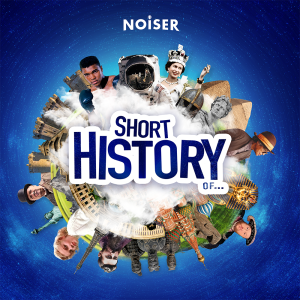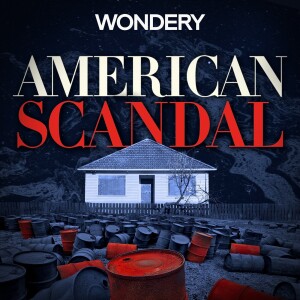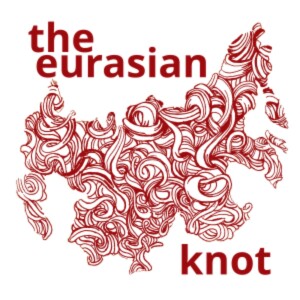

The Eurasian Knot
https://feeds.acast.com/public/shows/6744b7b7507c8fc412f628e8Episode List

City Symphonies
What does it mean for the city to be a symphony? True, city symphonies are a silent film genre best represented by Dziga Vertov and Walter Ruttmann. These early silent films tried to capture the “sound” of the city by editing images symphonically–to give the viewer a sense of the urban soundscape. But, as Daniel Schwartz explains, early 20th century avant-garde artists broadened the city symphony beyond the “silent” and into a full-fledged multimedia experiment. Some, like Luigi Russolo, pushed the boundaries between music and noise by incorporating new technology into music performance. Others, like Arseny Avraamov, reimagined the city as a giant living orchestra where its inhabitants were both producers and consumers of sound. While others, like Vertov, valorized the city into the natural habitat of a New Soviet Person and their labor. But what did a city symphony sound like? Especially when its composers left so few written instructions for conductors to recreate them? How does the city symphony speak to modernity itself? Intrigued, the Eurasian Knot talked to Daniel Schwartz about his book City Symphonies: Sound and the Composition of Urban Modernity, 1913–1931 published by McGill University Press.Guest:Daniel Schwartz is an associate professor in Russian and German Cinemas at McGill University. He’s the author of City Symphonies: Sound and the Composition of Urban Modernity, 1913-1931 published by McGill-Queen’s University Press. Featured clips in order of appearance:Luigi Russolo, “Reesveyo di una cheetà,” 1913.Arseny Avraamov, “Symphony of Sirens,”1922.Walter Ruttmann, “Weekend,” 1930.Vziga Vertov, “Enthusiasm: Symphony of the Donbas,” 1931. Hosted on Acast. See acast.com/privacy for more information.

Russia's 1993 Constitutional Crisis
In early October 1993, tanks pummeled the Russian Duma in central Moscow. It was a dark mirror of just two years prior when Boris Yeltsin definitely climbed atop a tank and made history. Now, tanks were again Yeltsin’s historical instrument. Only this time, they were his. The 1993 Russian Constitutional Crisis was a turning point in the country’s post-Soviet transformation. The popular narrative was Russian Democrats repelling Russian nationalists and communists. The future vs. the past. And the future prevailed! It was a tight, clean story fit for the utopianism of the 1990s. In retrospect, however, it was the past that really won. Yeltsin’s constitutional power grab through the gun barrel set the first stones of Putinism. How should we understand this turning point? What was really going on? And how have these baby steps of Russian authoritarianism become a full-blown sprint? The Eurasian Knot turns to Jeff Hawn for some answers.Guest:Jeff Hawn is a graduate of American University School of International Service and is completing his PhD at London School of Economics. His dissertation addresses the history and consequences of the 1993 Constitutional Crisis and the emergence of modern Russia.Send us your sounds! PatreonKnotty News Hosted on Acast. See acast.com/privacy for more information.

Anthropology of Oil
Yale anthropologist Doug Rogers visited Pitt back in April. The Eurasian Knot couldn’t resist pulling him into the studio. Doug was one of the earliest guests on the show. So it was about time to reconnect and have a wide ranging conversation about his work on oil and corporations in Russia. Now he’s looking into experiments with hydrocarbonoclastic bacteria–germs that eat oil. We survey Doug’s career. The pull of anthropology and the nexus of oil, corporations, and civil society in Russia. And how he went from there to the history of petroleum microbiology. Guests:Douglas Rogers is Professor of Anthropology at Yale University. He’s the author of two award-winning books: The Old Faith and the Russian Land: A Historical Ethnography of Ethics in the Urals and The Depths of Russia: Oil, Power, and Culture After Socialism both published by Cornell University Press.Send us your sounds! PatreonKnotty News Hosted on Acast. See acast.com/privacy for more information.

Green Cities in the USSR and Brazil
What makes a happy city? That is, what makes a city livable and responsive to humans’ physical, emotional and cultural needs? Over the last century, city planners have turned to the maintenance of green spaces within urban jungles to address these issues. In this final event for Pitt REEES’ Eurasian Environments series, the Eurasian Knot paired Maria Taylor and Roberta Mendonca De Carvalho to discuss green cities from two different contexts. Taylor researches mid-20th century efforts to green Soviet cities in response to rapid urbanization. De Carvalho studies the relationship between urbanization and environment in the Brazilian Amazon. How did city planners in the USSR and Brazil use green spaces to make cities more livable? What obstacles did they encounter? And how do these disparate contexts help us understand the global problem that pits people, city, and ecology against each other? Maria Taylor and Roberta Mendonca De Carvalho give us a trough of mental cud to crew on.Guests:Maria C. Taylor is an Assistant Professor in the Department of Landscape Architecture at Cornell University. Her research focuses on the history and theory of landscape, architecture, and urban planning, particularly in the Soviet Union. Roberta Mendonca De Carvalho is a Teaching Associate Professor in the Urban Studies Program at the University of Pittsburgh. Her current research interests embrace urbanization as a worldwide process and tries to understand how it unfolds at the local scale. Hosted on Acast. See acast.com/privacy for more information.

Abortion (Bio)politics in Russia
In the waning decades of the Soviet Union, abortion was the main form of birth control. For example, official statistics from the late 1970s report that there were 250-270 abortions per 100 live births. It’s an astounding number. It points to a key paradox of state socialism and reproductive health: Abortion in the USSR was widely available, but mainly because the state couldn’t provide basic contraceptives. But the collapse of the Soviet system didn’t produce many remedies–Women now had access to contraception, but the economic ravages of the 1990s led many families to postpone childbearing. Abortion numbers remained high to begin lowering in the last two decades. How has the Russian government and civil society addressed abortion, contraception, family planning and women’s reproductive rights and health? What role has Western feminism and the debate over abortion played in Russia? And where do the increasing restrictions of abortion in Russia fit within the worldwide struggle for women’s reproductive freedom? The Eurasian Knot posed these questions and more to Michele Rivkin-Fish in this timely and crucial issue in her new book, Unmaking Russia’s Abortion Culture: Family Planning and the Struggle for a Liberal Biopolitics published by Vanderbilt University Press.Guest:Michele Rivkin-Fish is Associate Professor of Anthropology at UNC-Chapel Hill. Her research examines reproductive politics in Soviet and post-Soviet Russia. She’s the author of Women’s Health in Post-Soviet Russia: The Politics of Intervention. Her most recent book is Unmaking Russia’s Abortion Culture: Family Planning and the Struggle for a Liberal Biopolitics is published by Vanderbilt University Press.Send us your sounds! PatreonKnotty News Hosted on Acast. See acast.com/privacy for more information.
Create Your Podcast In Minutes
- Full-featured podcast site
- Unlimited storage and bandwidth
- Comprehensive podcast stats
- Distribute to Apple Podcasts, Spotify, and more
- Make money with your podcast
